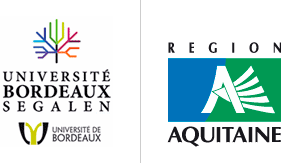Oral communication, iL37
Official XXIst International Pigment Cell Conference website - 21-24 Sept 2011, Bordeaux - France | updated: September 04 2011
Impacts of p16 deficiency on melanocyte gene expression and biology: relation to early melanoma
| SPEAKER | D.C. Bennett #whois submiter ? |
| AUTHOR(s) | D.M. Kallenberg, J.K. Soo, E.V. Sviderskaya, D.C. Bennett |
Single oncogenic mutations in melanocytes can produce naevi (moles), growth-arrested via senescence, mediated partly by p16 (product of melanoma locus CDKN2A). Melanoma growth requires evasion of senescence: most or all melanomas have defects in the p16 pathway. Human melanomas undergo a radial growth phase (RGP: thin and largely within the epidermis) and/or a vertical growth phase (more invasive). The radial shape may involve keratinocyte-dependence, since low-passage RGP cultures without keratinocytes show poor growth and frequent apoptosis, suppressed by keratinocyte-derived factors (stem cell factor+ endothelin 1: SCF+EDN1). This may arise from p16 loss, since cultured p16-null human and mouse melanocytes likewise grow poorly, but much better with keratinocytes or SCF+EDN1. We have been analyzing the mechanisms of the keratinocyte-dependence in two p16-null human melanocyte strains, using TUNEL and caspase 3/7 assays, growth curves and BrdU assays. Immortalization was by retroviral transduction of TERT. Nonimmortal p16-null melanocytes grown without keratinocytes showed low proliferation rates as well as frequent apoptosis, both alleviated by SCF+EDN1. Inhibition of p53 activity using pifithrin-alpha led to incomplete suppression of the apoptosis, indicating a contribution by other pathways. TERT-immortalized sublines of the p16-null strains showed some markers of cellular transformation: reduced growth-factor dependence, increased saturation densities and reduced anchorage-dependence. The findings are consistent with melanoma invasion out of the epidermis being inhibited by p16/RB deficiency but promoted by immortalization via TERT.

